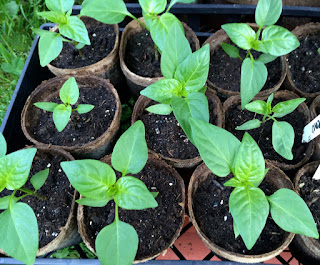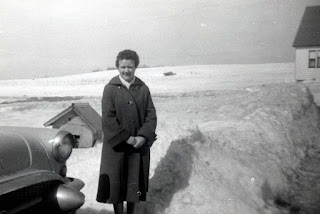 |
| New Girl Tomato - Johnny's Selected Seeds |
Are you thinking about planting tomatoes in your home garden this summer? Why not consider one of the USDA Certified Organic varieties we can start for you.
Pictured above is the New Girl tomato. We grew this tomato for the first time in the 2017 growing season. Vigorous plants yielded cluster after cluster of good-sized, flavorful fruits until frost claimed them in October. With its short (62 day) season, you should have good luck with this variety.
 |
| Oregon Spring Tomato - Fedco Seeds |
Oregon Spring is one of the earliest tomatoes at 58 days from transplant. The Fedco catalog says it's "recommended as a hedge in northern climates for cold summers." This variety has been a favorite of northern growers since the 1980s.
 |
| Stupice Tomato - Uprising Organic Seeds |
Stupice has been part of my garden forever! It's often the first tomato (55 - 70 days) to ripen and continues to produce through the end of the season. Stupice bears smaller-size fruit (2-3 inches) with a deep red color. It's described in the seed catalog as a "reliable old friend." The biggest problem is how to pronounce it!
 |
| Moskvich Tomato - High Mowing Organic Seeds |
The Moskvich tomato is another old favorite of mine. The seed catalog describes it this way: "...deep red color and luscious, rich flavor. Great eaten fresh or processed. Like all Russians, it can stand up to cool conditions."
Other varieties include: Rose De Berne, German Johnson, Sweetie Cherry, Black Cherry, Weisnicht's, Brandywine, Sophie's Choice, Silvery Fir Tree, Cherokee Purple, Cherokee Chocolate, Amish Paste, Northern Ruby Paste, Roma.
Let's have a conversation so I can get your plants started in time for transplant when frost danger has passed at the end of May.
Let's start the conversation via email: metzgerfarm@gmail.com

















































